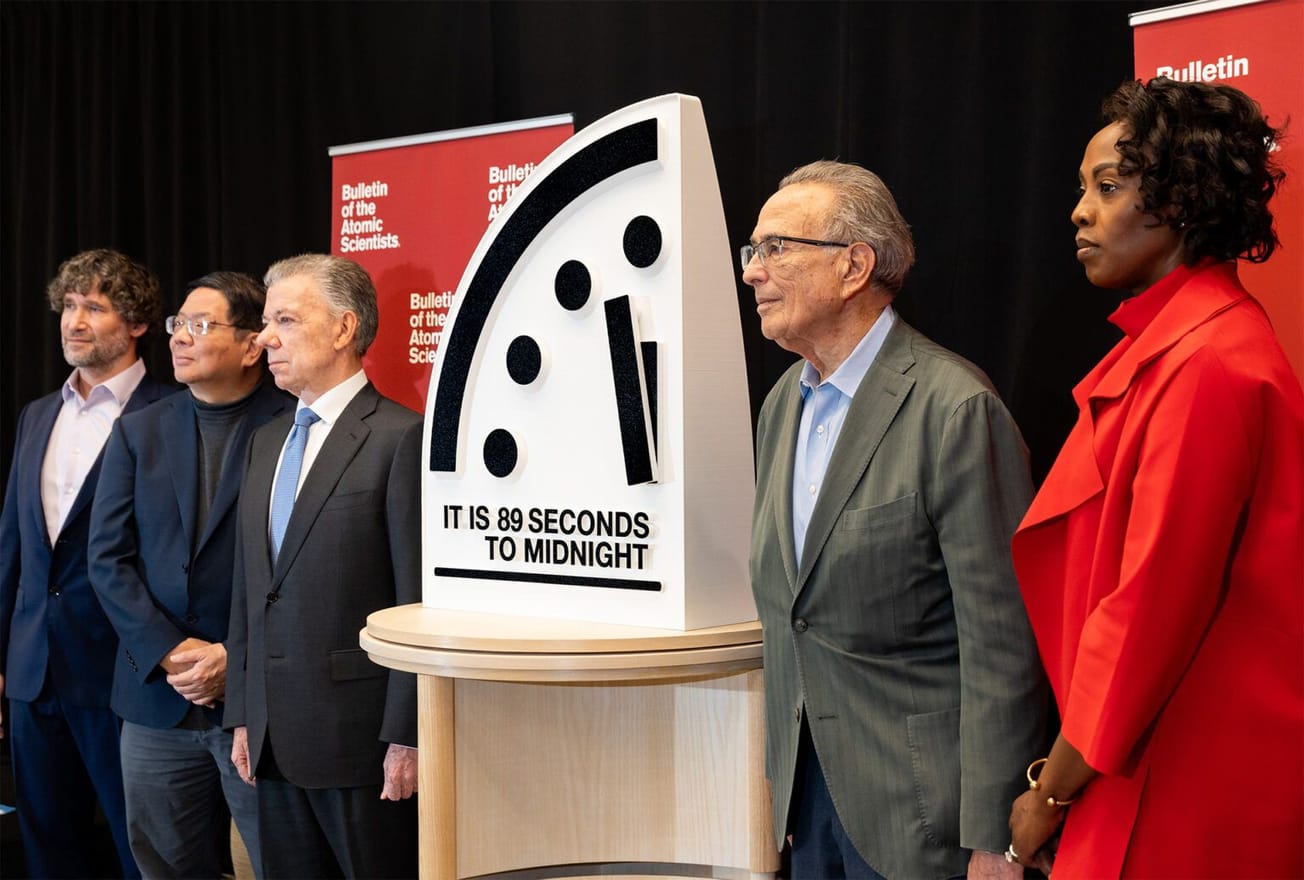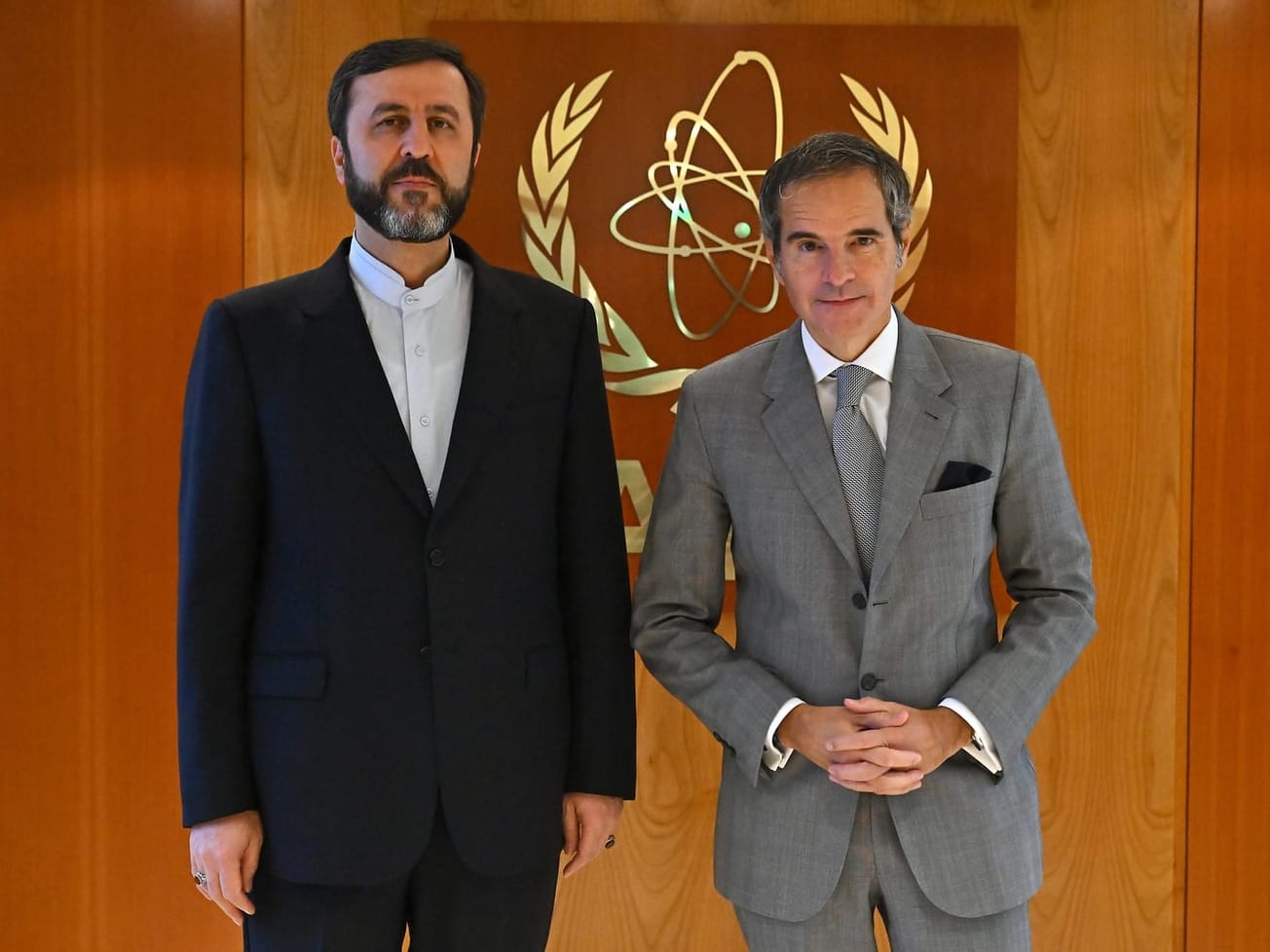The head of the International Atomic Energy Agency expressed frustration that his organization isn't doing more to protect Europe's biggest nuclear power plant.
IAEA Director General Rafael Mariano Grossi told his agency's Board of Governors on Thursday that he fears it's only a matter of time before disaster strikes Ukraine's Zaporizhzhya Nuclear Power Plant – which temporarily lost all power earlier that morning.
A day later, the Board reappointed him by acclamation to a second four-year term at the helm of the agency starting in early December.
Grossi noted it's the first time the plant has lost all power since last November. He spoke after Russian missiles struck parts of Ukraine, killing several people. The attacks caused the 750 kilovolt (kV) main external power line to be disconnected; its only remaining 330 kV backup power line to the electricity grid remained out of service and was being repaired due to damage caused several days earlier.
"Yet again Zaporizhzhya Nuclear Power Plant is running on emergency diesels – the last line of defense. This is the sixth time – let me say it again sixth time – that ZNPP has lost all off-site power and has had to operate in this emergency mode. Let me remind you this is the largest nuclear power station in Europe," he told the board.
"What are we doing? How can we sit here in this room this morning and allow this to happen? This cannot go on," Grossi continued. "I am astonished by the complacency – what are we doing to prevent this happening? We are the IAEA, we are meant to care about nuclear safety."
Outlining recent safeguards developments in #Iran; our nuclear safety, security, and safeguards activities in #Ukraine; and numerous advancements in IAEA programmes and initiatives, @rafaelmgrossi opened this week's Board of Governors meeting. 👉 https://t.co/wD89vNCqTT pic.twitter.com/IjfHil4zmz
— IAEA - International Atomic Energy Agency ⚛️ (@iaeaorg) March 9, 2023
Deeply honored to be appointed to a second term as the head of this formidable tool that is the @iaeaorg and to lead its committed staff. I thank the Member States for their trust. I will honor it every single day. https://t.co/SGF95gj8mD pic.twitter.com/f6tbe9UWuR
— Rafael MarianoGrossi (@rafaelmgrossi) March 10, 2023
'Rolling a dice'
Ukraine's President Volodymyr Zelenskyy said on Telegram it was "a difficult night" due to a "massive rocket attack across the country" in 10 regions: Kyiv, Kirovohrad, Dnipro, Odesa, Kharkiv, Zaporizhzhia, Lviv, Ivano-Frankivsk, Zhytomyr and Vinnytsia.
"Attacks on critical infrastructure and residential buildings. Unfortunately, there are injured and dead. My condolences to the families," he said. "The enemy fired 81 missiles in an attempt to intimidate Ukrainians again, returning to their miserable tactics. The occupiers can only terrorize civilians. That's all they can do."
Ukraine’s armed forces said on Facebook that it intercepted 34 winged missiles and four Iranian-made Shahed drones.
At the ZNPP, all 20 emergency diesel generators were activated and the site’s essential power now depends on eight of those diesels, with the rest in standby mode, said Grossi. But there's only enough diesel left on-site for another 15 days.
It's needed to prevent a radiation catastrophe that could endanger Ukraine and the region, since nuclear power plants need reliable, constant power to keep their cooling systems running and prevent a disastrous meltdown.
IAEA has positioned experts for continuous monitoring of Ukraine's four nuclear power plants – which have 16 nuclear reactors between them – and the site of the 1986 Chernobyl nuclear disaster, but the agency hasn't been able to strike a deal with Moscow to create a safe zone around the plant. Grossi said it's not enough.
"Each time we are rolling a dice. And if we allow this to continue time after time, then one day our luck will run out," he said. "I call on everyone in this room today and elsewhere: we must commit to protect the safety and security of the plant. And we need to commit now. What is need is action. I will continue my urgent consultations and contacts."
This story has been updated with additional details.








